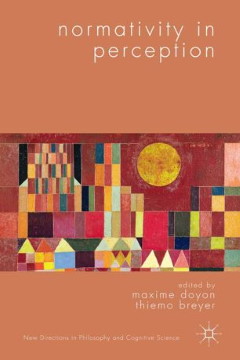Repository | Book | Chapter

(2015) Normativity in perception, Dordrecht, Springer.
The idea that our perceptual openness to the world is normative can mean different things. In the Kantian tradition of Peter Strawson, Wilfrid Sellars and John McDowell, this openness is essentially tied to epistemic justification, that is to say, to our readiness to provide reasons for our actions and our beliefs about how things are. In the phenomenological tradition inaugurated by Edmund Husserl, the notion of norm-responsiveness that is relevant to perceptual experience has less to do with epistemic justification than with perception's capacity to guide action or elicit certain behaviors. In the lectures on Active and Passive Synthesis, Husserl explains how perception involves a pull towards gaining a more optimal view of the object by moving around it or scrutinizing it in various ways. On his part, Maurice Merleau-Ponty invokes the notion of norm in reference to our capacity to skillfully move our bodies and alter our points of view according to the particular demands of our perceptual situation.
Publication details
Full citation:
Doyon, M. (2015)., Perception and normative self-consciousness, in M. Doyon & T. Breyer (eds.), Normativity in perception, Dordrecht, Springer, pp. 38-55.
This document is unfortunately not available for download at the moment.



